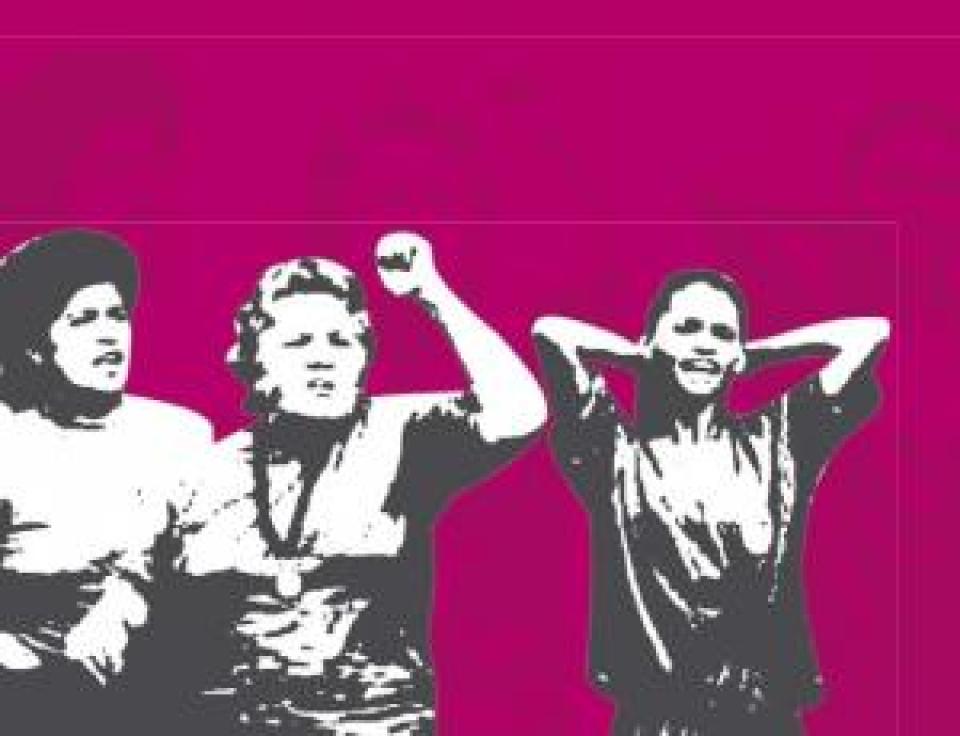
The Women Human Rights Defenders International Coalition (WHRD IC) condemns the aggressive and systematic digital harassment of the Latin America and Caribbean Womens Health Network (LACWHN).
The Women Human Rights Defenders International Coalition (WHRD IC) expresses its deep concern at the recent hacking of the website of the Latin America and Caribbean Womens Health Networks (LACWHN). The attack is emblematic of the serious threat that online harassment presents to sexual and reproductive rights activists and constitutes an aggressive and malicious violation of LACWHN‘s right to freedom of expression and association. The International Coalition affirms the need to ensure an enabling environment for LACWHN to continue its essential work in the promotion of the comprehensive well-being of women and their full enjoyment of their human rights in the region, through advocacy, research and education programmes.
On 21 September LACWHN‘s website was hacked and disabled: www.reddesalud.org. The attack occurred immediately following the launch of several campaign activities on September 19th and 20th including the #28SAbortoLegal social media campaign as well as the posting of a photo album and posters. These advocacy initiatives were part of LACWHN‘s participation in the 28 September Global Day of Action for Access to Safe and Legal Abortion1 and 28 September campaign, Day for the Decriminalization of Abortion in Latin America and the Caribbean.2
The WHRD IC notes with concern that, as articulated by the UN Special Rapporteur on HRDs, WHRDs working in the defence of sexual and reproductive rights are at a particular risk of harassment, discrimination, stigma, criminalisation and physical violence. The risk of stigmatisation is a serious threat to the defence of gender- or sexuality-based rights because the work of these defenders is perceived as challenging established socio-cultural norms, tradition or perceptions about the role and status of women in society (A/HRC/16/44 par 85).
The WHRD IC believes the digital attack is a deliberate attempt to silence legitimate feminist voices, suppress dissent and stifle womens political participation in the public sphere on these issues by stigmatisation and sabotage. The spaces where we, as WHRDs working on sexual rights provide information and communicate from on the right to information on health and bodily integrity are being systematically attacked.
Indeed, in 2013 APC conducted a global survey (http://www.genderit.org/articles/survey-sexual-activism-morality-and-int…) on risks facing WHRDs working on sexual rights, including reproductive health and rights, LGBT rights, access to safe abortion, sexual violence and rape, and sex education. 99% of activists stated that the internet was a crucial tool for advancing their human rights work. And yet, 51% reported receiving violent or threatening messages online. About one third of the sample mentioned intimidation (34%); blocking and filtering (33%); or censorship (29%). This resulted in 27% of them discontinuing the work they were doing online.”
The WHRD IC recalls the UN HRCs affirmation that the same rights that people have offline must also be protected online, in particular freedom of expression, which is applicable regardless of frontiers and through any media of ones choice, in accordance with articles 19 of the Universal Declaration of Human Rights and the International Covenant on Civil and Political Rights (A/HRC/20/l.13). Further, the Coalition also recalls the assertion made by the UN Special Rapporteur on Freedom of Opinion and Expression and the IACHR Special Rapporteur for Freedom of Expression that legislation regulating the Internet should take into account the special characteristics of the internet as a unique and transformative tool that enables billions of individuals to exercise their right to freedom of thought and expression as well as a range of other human rights.3
This organised attempt to silence WHRDs and their allies speaking out in favour of womens sexual and reproductive rights, and womens bodily autonomy cannot be tolerated and constitutes a grave violation of LACWHRN‘s right to defend rights. Given the importance and relatively new area of human rights, WHRD IC notes the importance of advancing regional and international jurisprudence, and contributing to a better understanding by the international community of the risks to FOE that exist on line, particularly in relationship to the protection of the right to defend rights.
Further, the WHRD IC calls on states in the LAC region to:
· take all possible measures to protect LACWHRN‘s members and ensure security and integrity for the womens rights defenders threatened by repressive mechanisms of the state or by civil groups which carry hatred and fundamentalism;
· uphold their commitment to ensure an enabling environment in which WHRDs can carry out their legitimate work by condemning and prosecuting the harassment, criminalisation and aggression aimed at networks, civil society organisations, feminists and advocates of sexual and reproductive rights;
· uphold an internet policy and infrastructure environment that supports democratic participation and human rights, including the right to privacy, information and expression;
· protect the right of freedom of expression, both and on and offline, of Women Human Rights Defenders and all those working to defend rights;
· cooperate in investigating this crime and bring its perpetrators to justice through due process.
———————————————
[1] See www.september28.org, day of action campaign spearheaded by Womens Global Network for Reproductive Rights (WGNRR), a member of the WHRD IC, and in collaboration with other global and regional partners.
[2] See www.28deseptiembre.org
[3] Joint Declaration by the UN SR for Freedom of Opinion and Expression and the IACHR-OAS SR on Freedom of expression. http://www.oas.org/en/iachr/expression/showarticle.asp?artID=888&lID=1. 20 Jan 2012.
—
You can download the pdf version of the statement below .
- 4309 views







Add new comment